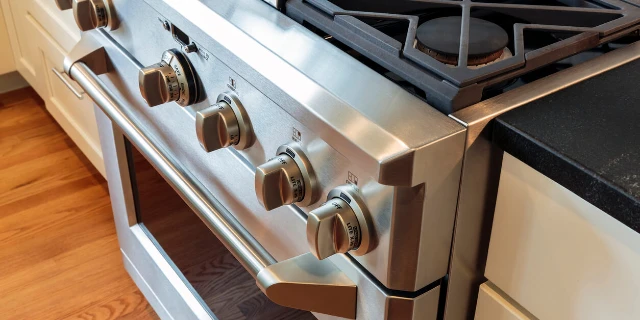Which is Right for Me: A Gas or Electric Oven?

Choosing the right appliance for your home can be a difficult process, and that's certainly true of selecting an oven for your home. The first and biggest decision you will face is choosing between gas and electricity as your power source. Both options have advantages and disadvantages, and we’ve found that both choices certainly work for different types of homes. Below, you can cross-reference both options and see which one fits your lifestyle the best.
Heating Time
Gas appliances heat up more rapidly, enabling you to begin cooking right away instead of waiting on an electric element to be brought up to temperature. For people who like to have heat quickly to cook their meals, gas might be an option to consider.
Retained Heat
As soon as you turn off a gas burner, it cools off quickly. Electric burners take longer. If you prefer to keep food warm on the stovetop for a few minutes, electric seems like a bit of a better choice. Fast-cooling gas is better for safety concerns, such as when small children are around.
Cleaning
Glasstop ranges have been known to clean fast and easy, with no crevices or uneven areas to get into. They also accumulate less mess to begin with. A gas range takes a little more effort, making it a more time-consuming part of your kitchen cleaning duties.
Even Heating
A gas oven accumulates heat at the top, making it tougher to bake evenly. An electric oven is more uniform, ensuring thorough cooking for certain dishes.
The most important thing to have in a good kitchen is the right appliances for the way you like to cook. For some people, a gas oven is ideal. For others, an electric oven is the way to go. If you're still struggling to decide after reading this, a Mr. Appliance specialist would love to walk you through your options and what suits your needs best.


